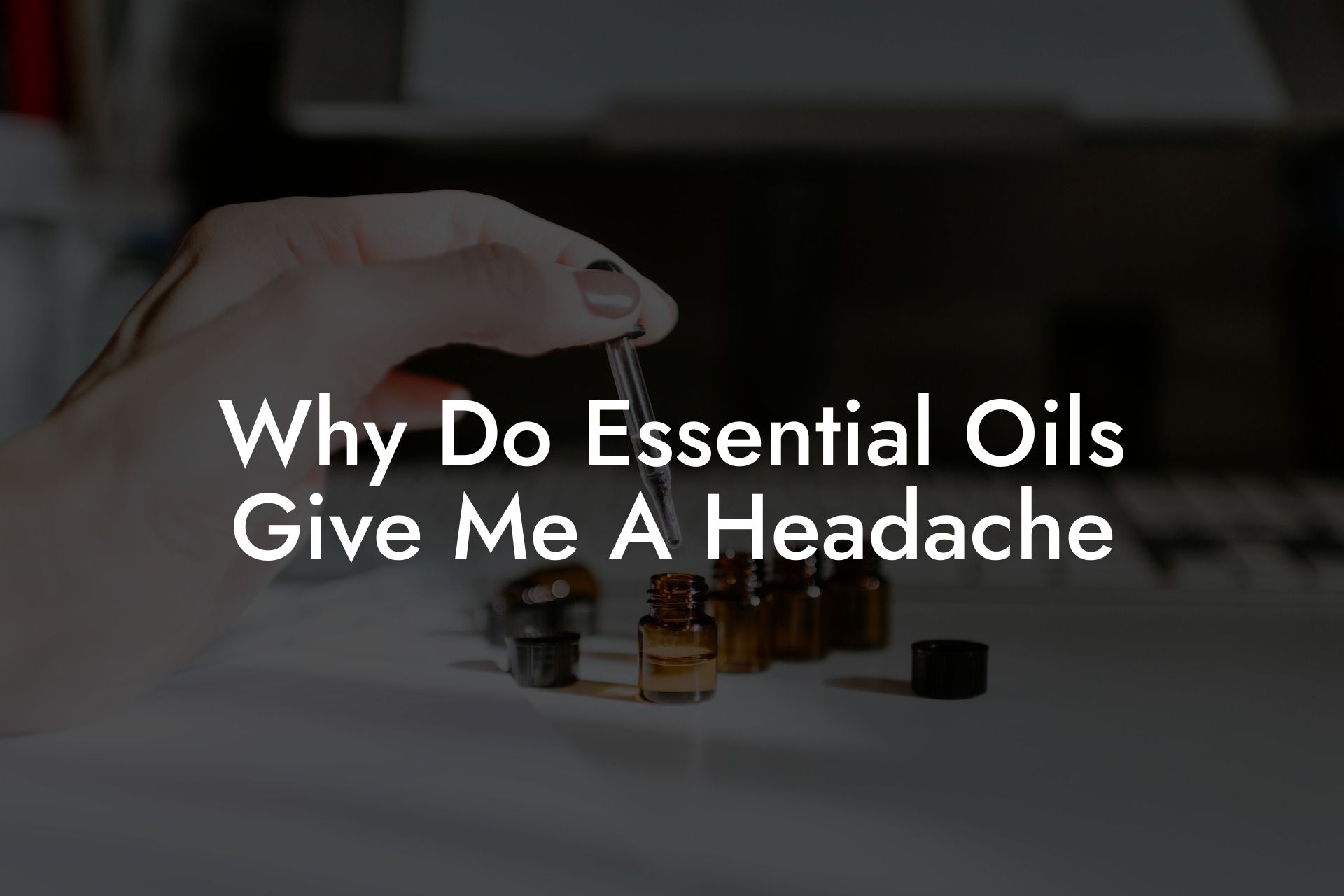The wonderful world of essential oils can provide numerous benefits for health and wellbeing. However, while many people enjoy these delightful fragrances without any issues, some may experience unwanted side effects, like headaches. If you’ve ever wondered why essential oils give you a headache, you’re not alone. In this informative article, we will explore the reasons behind this phenomenon and offer solutions to help you enjoy the benefits of essential oils without any discomfort.
Table of Contents
Chemical Sensitivity and Essential Oils
Some individuals are more sensitive to specific chemicals found in essential oils. These naturally occurring chemicals can vary in potency and composition, depending on the plant and distillation process. When inhaled or applied to the skin, these chemicals may trigger headaches in sensitive individuals.
1. Limonene
Found in citrus essential oils like lemon, orange, and bergamot, limonene is an organic compound that can cause irritation and headaches for some people.
2. Linalool
Widely present in lavender, sweet basil, and coriander essential oils, linalool can sometimes induce headaches for those more sensitive to fragrances.
3. Eugenol
As a primary component in clove, nutmeg, and cinnamon essential oils, eugenol can provoke headaches or cause allergic reactions in some individuals.
Undiluted Oils and Overuse
Essential oils are highly concentrated and can be very potent. Overusing these oils or failing to dilute them properly before use may result in headaches. It is important to know the appropriate dilution ratio for any given oil and always follow the guidelines for safe use.
Over-exposure to Fragrances
Even if you do not have any specific sensitivities to essential oil components, prolonged exposure to strong fragrances can still cause headaches. This effect is similar to getting a headache from strong perfume or air fresheners. Limiting your exposure time or using a more subtle blend may help prevent headaches in this case.
How to Prevent Essential Oil Headaches
1. Dilute Properly
Always follow the recommended dilution guidelines for each essential oil, typically provided by the manufacturer. A general rule of thumb is to limit the concentration of essential oils to 1-2% when using on the skin. A base oil, such as almond or coconut, can be used to dilute the essential oil.
2. Use an Appropriate Method of Application
Whether you’re using essential oils for inhalation, skin application, or diffusion, it’s vital to use the correct method for each oil. This involves appropriate dilution, diffusion or inhalation techniques, and avoiding direct skin contact if not recommended for the specific oil.
3. Limit Exposure Time
Rather than using essential oils continuously throughout the day, give yourself regular breaks. Consider using a timer on your diffuser or taking breaks from your environment to help avoid overexposure to fragrances.
4. Start with a Patch Test
If you suspect that you may be sensitive to specific oils, conduct a patch test on a small area of your skin before using more widely. This will help you identify any irritation or allergic reactions in advance.
5. Consult an Aromatherapist
If you continue to experience headaches from essential oils, a professional aromatherapist may be able to help you determine which oils are best suited for your needs while minimizing any negative side effects.
Why Do Essential Oils Give Me A Headache Example:
Imagine you recently purchased a beautiful lavender essential oil to help you relax and destress at the end of the day. Unfortunately, you find that whenever you diffuse the oil, you quickly develop a headache. After reading this article, you realize that you may be sensitive to the linalool found in lavender oil. Instead of giving up on essential oils completely, you decide to try a different oil with a lower concentration of linalool, like sweet marjoram. You also ensure that you properly dilute the oil, set a timer on your diffuser, and take breaks from the fragrance as needed. These simple changes help you enjoy the relaxing benefits of essential oils headache-free.
We hope you found this article both enlightening and helpful in understanding why essential oils can sometimes cause headaches. By following the tips outlined above, you can minimize the likelihood of experiencing headaches while still enjoying the many benefits that essential oils have to offer. Don’t forget to share this article with your friends and fellow essential oil enthusiasts, and make sure to visit our website for more informative guides on essential oils and aromacology. Explore our range of artisan essential earth oils crafted by our team of expert aromacologists at Oshu Oils – let us help you bring balance to your modern lifestyle.





















